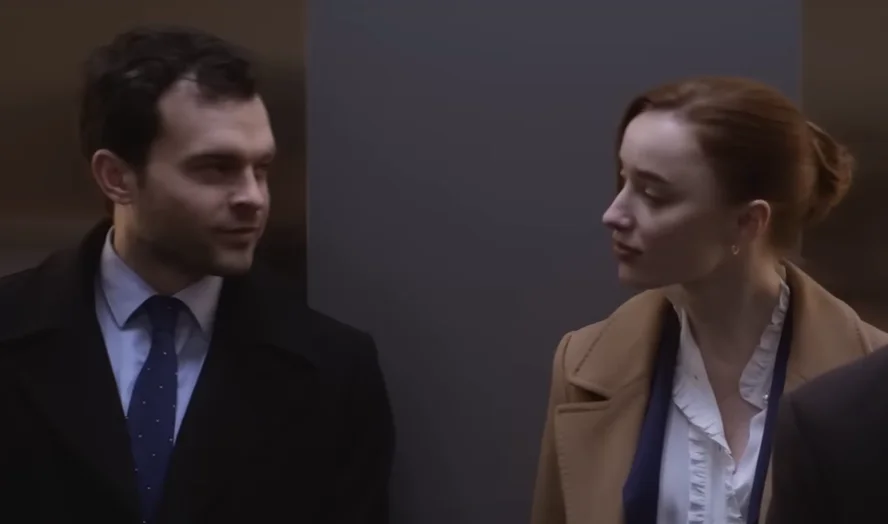“Fair Play,” Chloe Domont’s directorial debut, is a psychological thriller that quietly landed on Netflix but garnered significant critical acclaim for its sharp commentary on gender roles in the workplace.
The film revolves around the complex relationship between its main characters, Emily and Luke, whose forbidden workplace romance ultimately leads to a tumultuous ending.
In this article, we’ll explore the intricacies of the movie’s conclusion, shedding light on the hidden details and themes that make “Fair Play” a must-watch.
The Fragility of the Male Ego
One of the central themes of “Fair Play” is the fragility of the male ego, personified through Luke’s jealousy and bitterness as he grapples with Emily’s professional success.
The couple’s secret engagement at the workplace initially seems promising. However, as Emily ascends to a higher status, the power imbalance takes its toll on their relationship, leading to its eventual demise.

The Trigger for the Breakup
The toxic dynamics between Emily and Luke make their breakup inevitable. The tipping point arrives when Luke has a breakdown at the workplace during a crucial meeting, exposing the true nature of their relationship to their superiors.
This incident illustrates Luke’s prioritization of personal status and power over his commitment to Emily, sealing the fate of their relationship.
Emily’s Refusal to Endorse Luke
Emily’s decision not to advocate for Luke’s promotion holds a crucial role in their relationship’s downfall. While her bitterness over their earlier argument contributes to this choice, it is a complex decision rooted in her concerns about Luke exploiting her power for his gain.
Emily had always wanted Luke to succeed but not at the expense of her own merit. Additionally, questions arise about Luke’s actual suitability for the promotion, as it’s revealed that he was initially employed as a favor and not due to his qualifications.

Luke’s Data Analysis Failure
In a pivotal scene, Luke convinces Emily to invest heavily in a particular stock based on promising statistics. However, this decision results in significant financial losses for the company, and Emily takes the blame.
Although the film does not explicitly explain Luke’s failure in data analysis, it can be inferred that he rushed into the decision to impress his superiors, failing to thoroughly assess the numbers. This incident further validates Campbell’s doubts about Luke’s competence.
Luke’s Apology Genuine or Deceptive?
The final scene of “Fair Play” is marked by a dramatic shift in power dynamics, with Emily taking control of the relationship by threatening Luke with a kitchen knife. Luke initially shows little remorse, but when confronted with the destruction he’s caused, he breaks down in tears, begging for forgiveness.
This moment leaves viewers pondering the authenticity of Luke’s apology. The deliberate ambiguity in the scene aligns with the overarching theme of deception that runs throughout the film, where both Emily and Luke kept secrets from each other and their colleagues at the workplace.
The question remains unanswered, leaving the audience to interpret Luke’s intentions and emotional state in that crucial moment.
Conclusion
“Fair Play” is a thought-provoking exploration of workplace dynamics, power imbalances, and the complexities of human relationships. Its ending showcases the fragility of the male ego, the consequences of toxic workplace dynamics, and the theme of deception that pervades the movie.
While some questions may linger, the film’s ambiguity adds depth and intrigue to its characters and their tumultuous journey. With a high Rotten Tomatoes score, “Fair Play” proves to be a compelling and engaging cinematic experience that delves into the intricate web of power, secrets, and personal relationships.

